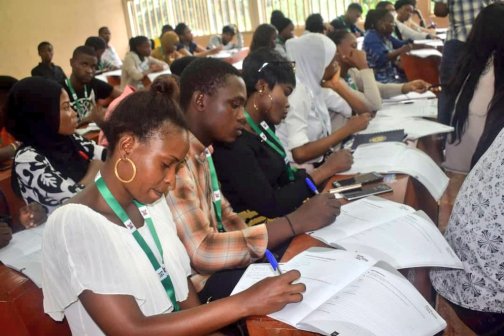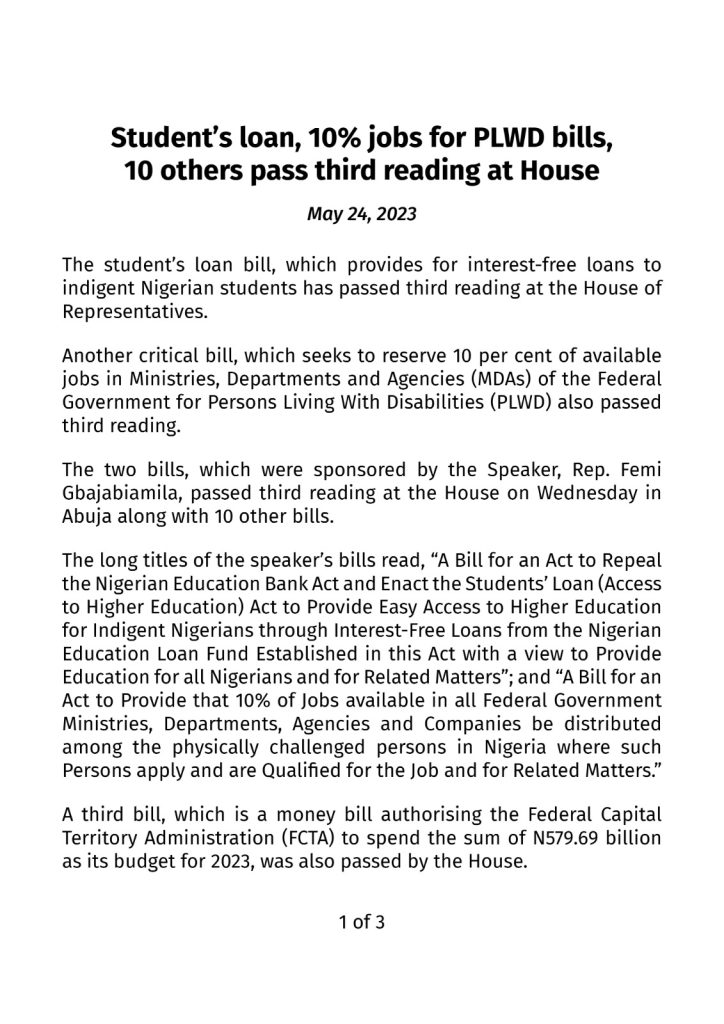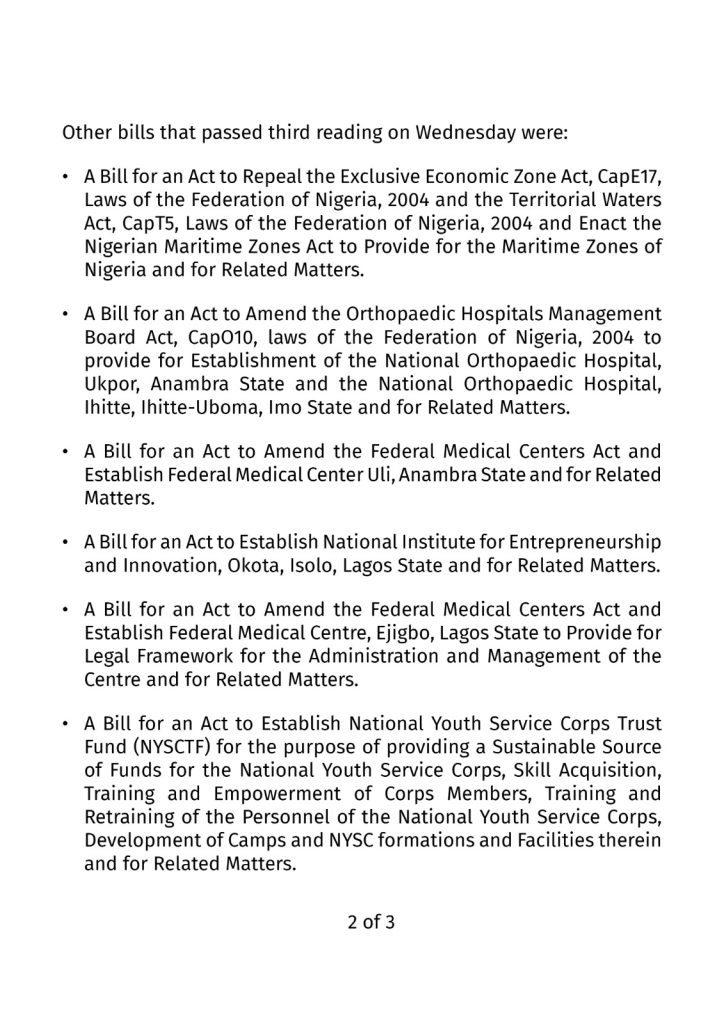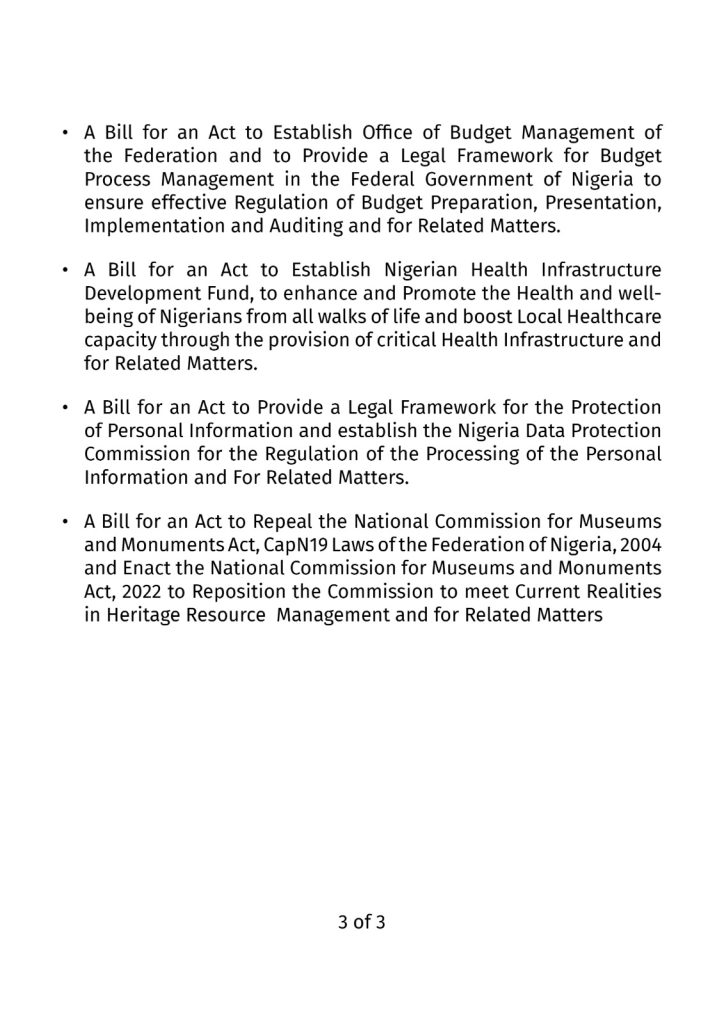President Bola Ahmed Tinubu took a noticeable step towards improving the education sector in Nigeria by signing the Student Loan Bill into law on Monday. 9jahotvibes reports that this move follows his recent signing of the Uniform Retirement Age For Judicial Officers and The 2023 Electricity Acts, which took place just days after his inauguration on May 29. Continue Reading

The news of the bill’s signing has been met with widespread acclaim, particularly from the student community. However, to provide clarity and avoid any misconceptions, we present the detailed provisions of the bill.
This newspaper reports that the bill was sponsored by Speaker Femi Gbajabiamila and passed its third reading at the House of Representatives, as stated in a May statement released by the House. Its full title is the “Student Loan (Access to Higher Education) Act,” which repeals the Nigerian Education Bank Act.



The primary objective of the bill is to provide interest-free loans to financially disadvantaged Nigerian students, thereby increasing access to higher education for all.
Under this Act, the Nigerian Education Loan Fund is established to facilitate the provision of these loans. The fund will operate within the newly established Nigerian Education Bank, which will serve as a central authority responsible for overseeing, coordinating, administering, and monitoring student loans across the country.
As part of its functions, the Nigerian Education Bank will meticulously review loan applications from students attending higher educational institutions in Nigeria. It will ensure that applicants meet all the requirements specified in the Act before approving and disbursing the loans.
Additionally, the bank will monitor and manage loan accounts, ensuring compliance with disbursement procedures. It will also keep records of loan recipients’ academic progress, including information on their graduation, national service, and employment. By implementing this monitoring process, the bank aims to ensure that loan beneficiaries promptly commence loan repayment when due, among other essential responsibilities.
It is worth noting that the Bill emphasizes equal access to the loan scheme for all students enrolled in public institutions across Nigeria. The Act strictly prohibits any form of discrimination based on gender, religion, tribe, social standing, or disability.
![All You Need to Know About the Student Loan Bill Signed by Tinubu [DETAILS]](https://9jahotvibes.com/wp-content/uploads/2023/06/All-You-Need-to-Know-About-the-Student-Loan-Bill.jpg)






![Omo-Agege, Keyamo, Oyetola, Others Hustle for Ministerial Appointments [DETAILS]](https://9jahotvibes.com/wp-content/uploads/2023/06/Omo-Agege-Keyamo-Oyetola-Others-Hustle-for-Ministerial-Appointments-DETAILS.jpeg)


